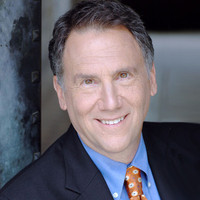You work too hard.
I don't care how little you do; you still do too much. Or, put another way, you do nothing too little.
That's what I think, and that's what Arthur C. Brooks thinks, too.
Brooks is a writer for The Atlantic, as well as a Harvard professor, an author and, in his spare time, a podcaster. Why this overworked overachiever is telling us that we need to work less and do nothing more is beyond me, but's he's done just that in his recent column, "How to Embrace Doing Nothing."
One person who agrees with Brooks is the philosopher Bertrand Russell (have you seen his TikTok videos? They're killer.)
In 1932, Russell "proposed a campaign to 'induce young men to do nothing.'"
According to Brooks, "there was no evidence that he ever followed this campaign himself; nor, to my knowledge, did anyone else." Except, of course, for your favorite workplace humor columnist who has been promoting idleness since Hector was a pup.
There are many reasons why American workers don't do nothing. "Time is money" is the kind of core belief that has been drilled into us as though by a deranged dentist on crack. As result, "we may work to have leisure time, but actually spending that earned time feels like forgoing wages."
Besides, doing nothing is hard to do. Adding to the guilt you may feel when not making money, the bombardment of adrenaline-inducing distractions that come with work today make turning off your brain a real challenge. Want proof? When COVID-19 first struck, and people started working from home, banking the time they used to spend commuting, they didn't work less. In fact, "among knowledge workers, the average workday increased by 48.5 minutes."
If you need to do something to improve your skills at doing nothing, Brooks has suggestions. And I have suggestions about his suggestions. So, clear your desk and your mind. We're about to do something about doing nothing.
No. 1: Start small.
Don't expect to be an expert at doing nothing right from the jump. The people who have raised you, taught you and paid you have poisoned your mind. Idleness isn't a bad habit. It's a habit "we all need to adopt."
This is why you shouldn't book a beach vacation with the purpose of doing nothing for two glorious weeks. Chances are that before you have time to shake the sand out of your bathing suit, you'll put down that margarita and start searching for your cellphone.
A more reasonable goal for the novice no-brainer is to empty your mind for five solid minutes. This is best accomplished by "sitting quietly in a peaceful place, ideally with a view of something pleasant."
A view of your manager being escorted out of the building by armed guards would certainly be a pleasant sight, but you may have to wait before this happens, possibly a week or two. A more immediate option is to utilize the first five minutes of your next staff meeting — hardly pleasant in itself, but you could take advantage of that wonderful first five minutes when the doughnuts arrive.
Stare deeply into the doughnut box and let your brain drain until your mental fuel tank reads "empty." This is exactly the state you want to achieve for five minutes, then 10 minutes, and, eventually, eight hours a day.
Just be sure to wipe the sprinkles off the tip of your nose.
No. 2: Go on an unstructured vacation.
Forget about that rigorous itinerary on your next vacay. Let your mind — and your body — wander. Whether you end up roasting marshmallows in the Luxembourg Gardens or practicing your backstroke in the Trevi Fountain, spending a few aimless days will fortify your ability to do nothing when you return to the office. It will also open you up to new experiences, like being thrown in the clink for malicious trespass and vagrancy.
No. 3: Choose soft fascination.
"Soft fascination" refers to "activities that can gently hold your attention, while also leaving you plenty of bandwidth to mentally meander." Psychologists point to walking in nature, but there's another destination so soft it's almost melting.
Simply stroll to the Human Resources Department and ask for career advice. The response you get won't be all that fascinating, but it will certainly send your mind not just meandering but careening into a state of total blankness.
Trust me. A meeting with HR is like steam-cleaning your brain. It will come out shiny and bright and totally, gloriously, embracingly empty.
Bob Goldman was an advertising executive at a Fortune 500 company. He offers a virtual shoulder to cry on at bob@bgplanning.com. To find out more about Bob Goldman and read features by other Creators Syndicate writers and cartoonists, visit the Creators Syndicate website at www.creators.com.
Photo credit: Renan_Brun at Pixabay






View Comments